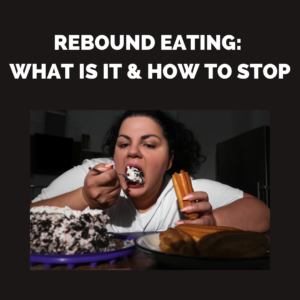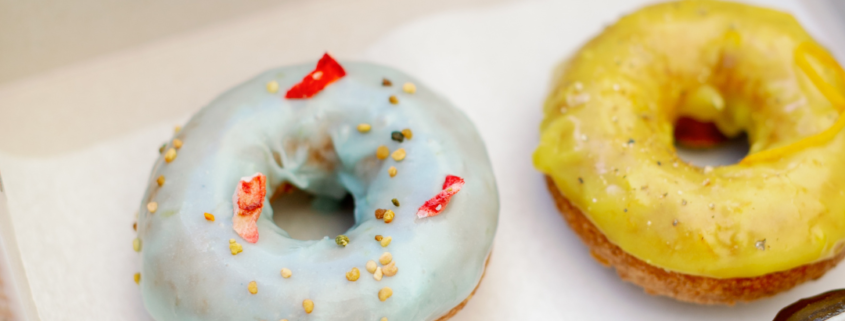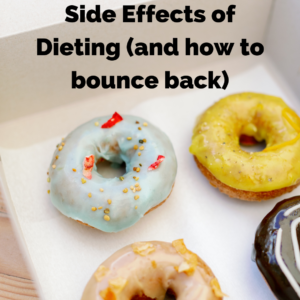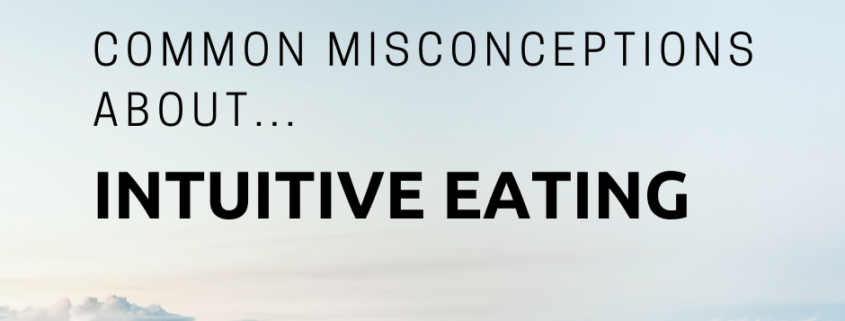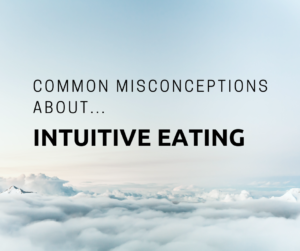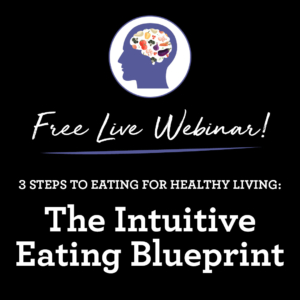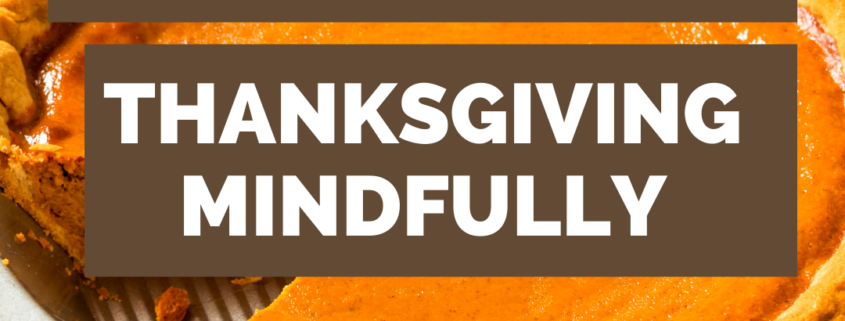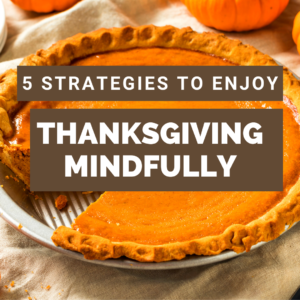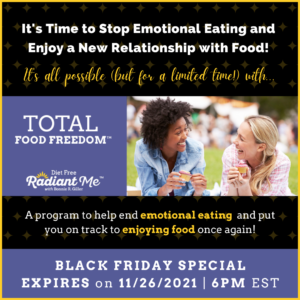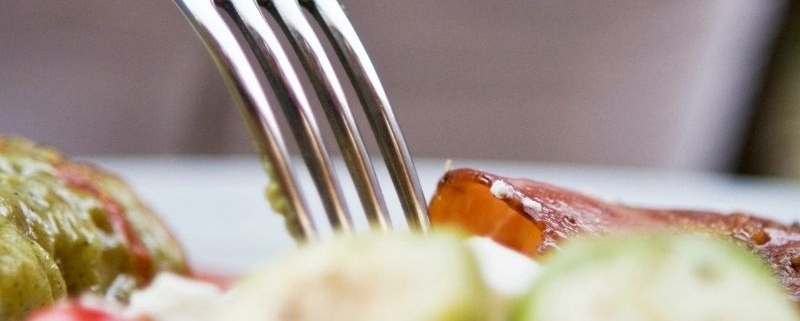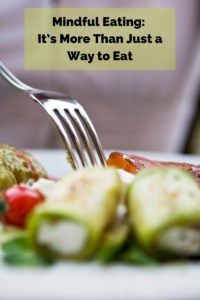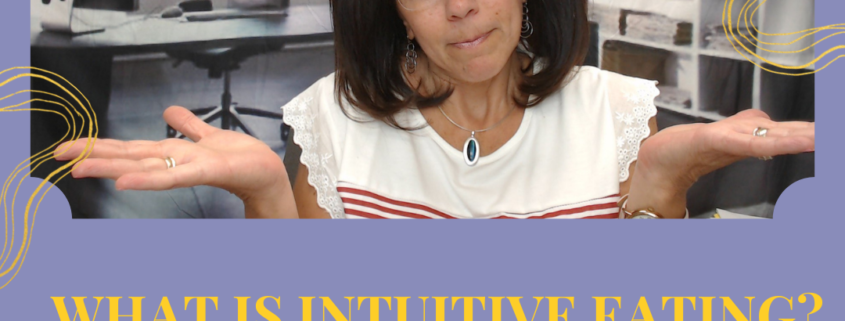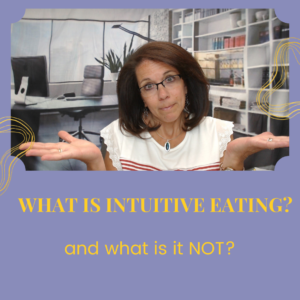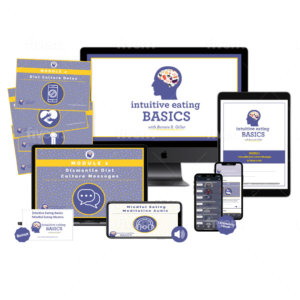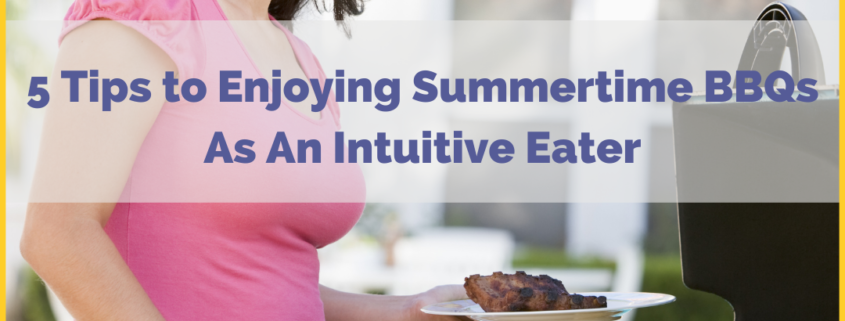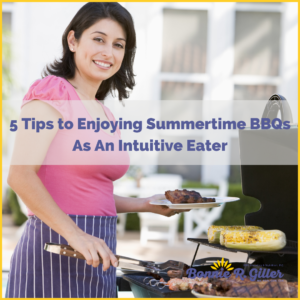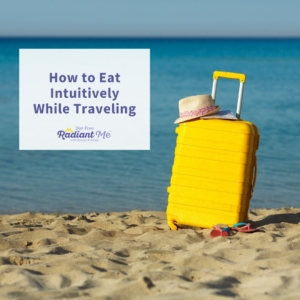5 Ways to Be Mindful of Your Eating this Holiday Season
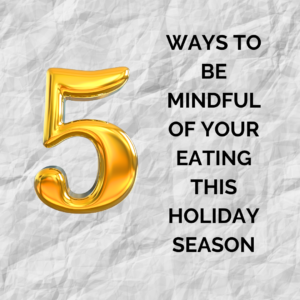 Can you believe that it’s already November and that the holiday season is upon us?
Can you believe that it’s already November and that the holiday season is upon us?
For so many of my clients, the holiday season was filled with anxiety, not only because of all the prep work, but they were also concerned about all the weight they would gain. They always worried that there were so many delicious treats and foods during the holidays that they wouldn’t trust themselves and would eat with abandon.
They didn’t understand that there was a way that they could enjoy the holidays and respect their body at the same time.
Everything changed for them when they decided to work with me on intuitive eating journey. They began eating mindfully and focused on how the food was making them feel rather than the calories they contained. They took the time to savor each bite while maintaining an awareness of their eating habits.
Here are 5 ways that you too can stay mindful during the holiday season.
- Slow Down.
Are you typically the first person at the table to finish your meal? Before you begin eating, think about how you will proceed to eat your meal. Consciously decide that you will slow down and allow at least 20-30 minutes to eat. Take the time to appreciate the food you are eating. And remember, you can always save whatever you don’t eat for leftovers.
- Sit Down at the Table.
Eating while standing in front of the refrigerator, buffet table, or while walking around will decrease your attention and satisfaction with your meal. You may have a whole plate of food in front of you when you started to make your rounds around the party, and an empty one at the end without consciously taking a single bite. Instead, fill your plate with foods you really want to eat and plan to sit while eating. Friends and family will likely join you and you can enjoy nice conversation while being more mindful of your eating.
- Savor your Food.
Focus on each bite of food that you put into your mouth. Experience the taste, texture, flavors, and aroma of the food. Try to identify the different flavors of the food. Is it sweet, salty, sour, crunchy, or smooth? Do you like it, dislike it, or it’s just okay? If you aren’t fully satisfied with it, don’t finish it. Try not to feel pressed to finish foods that doesn’t satisfy you.
- Be in the Moment.
Are you fully present when you are eating or are you eating with a bunch of distractions around you? Be sure to turn off the television and avoid reading or talking on the phone while eating. These activities take away from the mindfulness of eating. You may even need to take a moment to zone out of the conversation around you to fully immerse yourself in the meal.
- Put Your Fork Down.
Observe what you do with your silverware during the meal. Do you keep it in your hand? Are you preparing the next bite of food on the fork while chewing what’s in your mouth? When you turn your attention to the next bite, you are not being mindful and completely miss the food that you are currently eating. Instead of enjoying the food in your mouth, you are focusing on matters beyond the present. So, this year, put your fork down on the table while you are chewing and give all your attention to the food in your mouth.
These mindful eating tips are a start! But pay attention if the sneaky diet mentality turns these tips into rules!
If so, it’s time to address your mindset, beliefs, and move away from the diet mentality.
Send me a DM on Facebook, Instagram, or simply email me if you want support on your intuitive eating journey.



